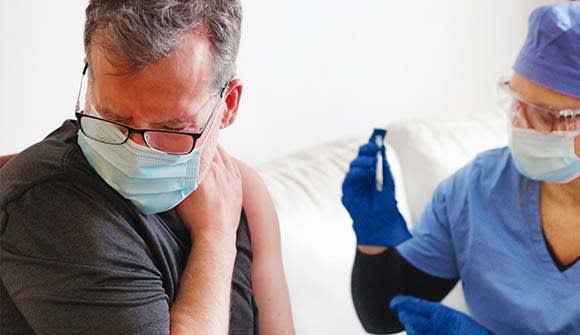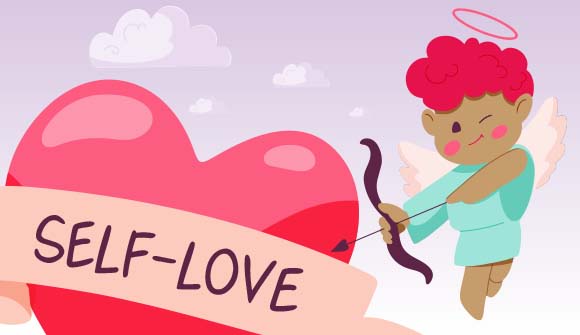Worth a shot
Managing fear of needles in adults.
Article Date:

Want to hear a joke?
William Shakespeare went to get a vaccine. The nurse said, "Which arm?" Shakespeare responded, "As You Like It." When it was complete, the nurse asked, "Was that painful?" Shakespeare responded, "Much Ado About Nothing."
OK, it's not the best joke, but in the time it took you to read it (and maybe have a little laugh), you could have had a flu or COVID-19 shot. A distraction like this is just one way to get through a fear of needles that may be affecting your decision to get a vaccine for yourself or your children, or having blood drawn for lab work to determine your health status.
According to Centers for Disease Control and Prevention (CDC) estimates, 1 in 4 adults has strong fears about needles. As many as 1 in 10 might delay receiving a vaccine due to this dread.
Managing the experience
Though the focus is typically on helping children overcome a fear of needles, adults need aid too. The good news is, many coping techniques can work for both.
Sandy Brown, a medical lab assistant and phlebotomist, has 30 years of experience drawing blood from patients at Baptist Medical Center Jacksonville. She offered some sound advice for helping patients through the process:
Understand the procedure: Ask your provider to explain when and why needles might be used, where the procedure will take place and who will be performing it. When drawing blood, "I will talk the patient through the experience to make it easier for them," said Brown.
Avert your eyes: For some, simply seeing a picture of a needle or saying the word causes anxiety. Don't look at the syringe while it's being prepared or as it approaches your skin. Use words like "poke" or "pinch" rather than "shot" or "pain" when thinking about or discussing it. Sometimes, the presence of other people causes stress. "Some don't do well when others are around, so we'll close the door to provide a private, quiet place for the treatment," Brown said.
Manage the senses: Though most shots truly feel like a pinch and are over quickly, a fearful mind may still focus on the "pain" aspect.
Ask your provider about numbing creams or sprays. These may require a prescription and need to be applied within a certain timeframe. Talk to your doctor prior to getting a shot or going to the lab.
Some practitioners offer cooling or vibration devices, which divert the brain's focus from the needle's sensation. An ice pack placed above the poke site is one easy idea.
Distract yourself: This is probably the easiest method for diverting fearful thoughts. "I'll tell a joke to make them laugh, or offer to sing to them, though that may hurt their ears," Brown said with a smile. "Or, I'll tell them to close their eyes and think about their favorite vacation, the person they love or winning the lottery. Anything that helps patients focus on something other than what we're doing." Looking at pictures on the wall or wearing headphones to listen to your favorite music also can help.
Take slow, measured breaths: Focus on mind-calming mantras to ease muscle tension, which can make a shot feel more intense. "Sometimes we let the patient lay down, which relaxes them a lot," added Brown.
For extreme fear or a more-advanced phobia, talking with a behavioral health specialist may be helpful.
Vaccines offer protection from preventable diseases. Baptist Health is here to help you find a primary care physician to help you receive the preventative care you need. You can schedule an appointment by calling 904.202.4YOU(4968) or requesting an appointment here. To learn more about COVID-19 vaccines, visit baptistjax.com/covid19vaccine.



